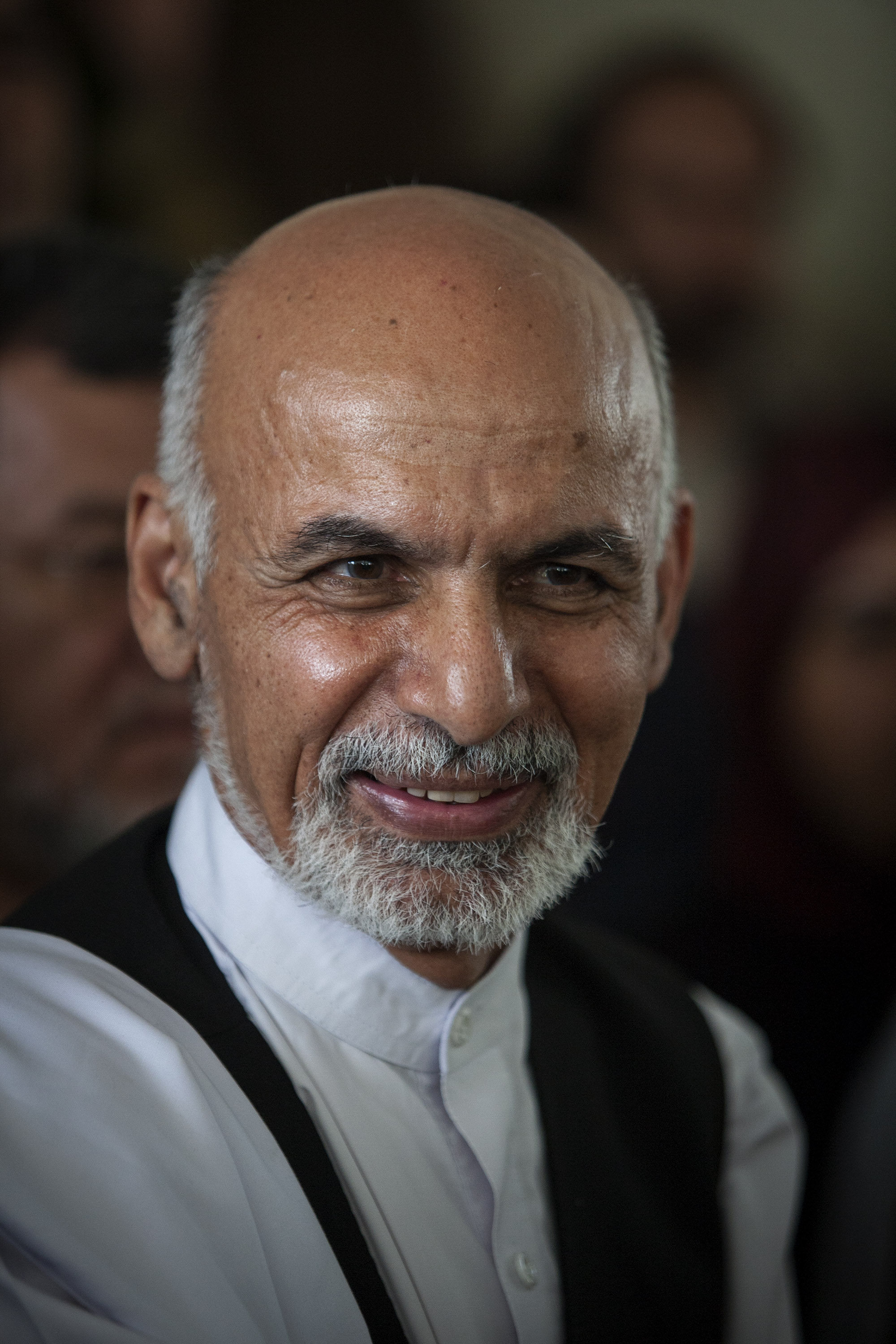Ghani, Ashraf (1949-…), was president of Afghanistan from 2014 to 2021. An economist, he had previously served as the country’s finance minister. In August 2021, the forces of the militant Islamic group called the Taliban seized control of Kabul, the capital of Afghanistan, and Ghani fled the country.

Mohammad Ashraf Ghani was born in 1949. He is a member of the large Ahmadzai tribe of the Pashtun ethnic group. Ghani grew up in Afghanistan’s eastern Logar Province. He attended school in Kabul, Afghanistan’s capital. In 1973, he earned a bachelor’s degree from the American University of Beirut, in Lebanon. He earned a Ph.D. degree in anthropology and international relations from Columbia University in New York City in 1982. During the 1980’s, the Soviet Union occupied Afghanistan. Rather than returning home after earning his Ph.D., Ghani remained in the United States. He taught at the University of California, Berkeley, and at Johns Hopkins University in Baltimore. In 1991, Ghani began working for the World Bank. He served as an adviser on economic development programs.
In the mid-1990’s, the Taliban took control of Afghanistan. In 2001, American and other allied troops assisted Afghan rebel forces in overthrowing the Taliban. Ghani soon returned to Kabul as a United Nations (UN) adviser. In late 2001, the UN sponsored a meeting of delegates from Afghanistan’s main ethnic and regional groups. The group met in Bonn , Germany. At the conference, Ghani helped craft an agreement to form a six-month transitional government headed by Hamid Karzai.
In 2002, Ghani helped organize a traditional Afghan council called a loya jirga that elected Karzai to be president of a two-year transitional government. Ghani briefly served as Karzai’s national security and economic adviser. From 2002 to 2004, Ghani served as Afghanistan’s finance minister.
In 2004, Ghani left the government over a disagreement with Karzai. Ghani then served as chancellor of Kabul University. In 2009, he unsuccessfully challenged Karzai for the presidency.
Ghani again ran for president in 2014. The first round of voting, held in April, produced no clear winner. The two candidates who received the most votes were Ghani and former foreign minister Abdullah Abdullah. Following a runoff election held in June, Abdullah and Ghani each accused the other of electoral fraud. United Nations representatives oversaw an examination of the ballots from the June vote. After months of negotiations, the two candidates agreed on a power-sharing deal. Under the agreement, Ghani, who had received the most votes in the runoff, became president. Abdullah became chief executive, a post with powers similar to those of a prime minister.
The September 2019 presidential election also led to challenges. In December, the election commission declared that preliminary results indicated Ghani had won a slim majority. Abdullah and some other opposition leaders claimed that some of the votes were fraudulent. In February 2020, the commission announced that Ghani had received a majority of the vote and had won the election. Ghani’s inauguration ceremony took place on March 9. Abudullah continued to claim fraud, however, and held a rival inauguration ceremony on the same day. Later in March, Ghani and Abdullah reached a power-sharing deal. Abdullah conceded the election in exchange for the right to appoint some members of Ghani’s Cabinet. Abdullah was also given a lead role in negotiating peace with the Taliban.
The United States and representatives of the Taliban signed an agreement in February 2020. The Taliban agreed not to allow such terrorist organizations as al-Qa`ida and the Islamic State (ISIS) to operate from bases in Afghanistan, and the United States agreed to a gradual withdrawal of its troops. In August, Ghani agreed to a prisoner release as a precondition to direct negotiations with the Taliban. Negotiations began in September. However, Taliban attacks increased in 2021 as U.S. and NATO troops withdrew. In early August, several major cities fell to the Taliban. On August 15, Taliban forces entered Kabul, and Ghani fled the country. The government of the United Arab Emirates (UAE) granted Ghani and his family permission to remain in the UAE on humanitarian grounds.
